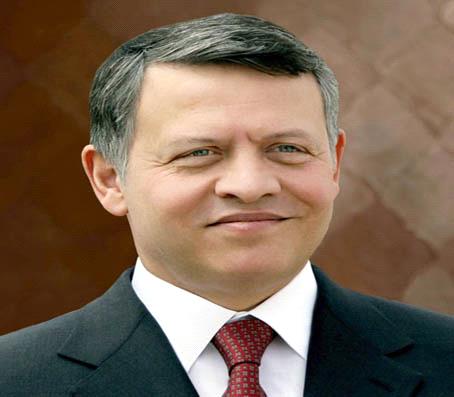Ammon News - AMMONNEWS - King Abdullah II on Saturday directed the government to develop a clear vision for the Jordanian economy for the next ten years within an integrated framework to align and enhance fiscal and monetary policies.
In a message to Prime Minister Abdullah Ensour, the King said the outlook should improve the competitiveness of the national economy and prop up productivity and self-reliance towards achieving comprehensive sustainable development and secure a decent life and bright future for Jordanians.
In his letter, His Majesty stressed that the success of such a process is contingent upon the adoption of a partnership with all authorities and forces, such as governmental entities, parliament, the private sector, civil society institutions and the local community.
"It also requires building on institutional and accumulative efforts and studies", the letter emphasized, referring to a host of previous national development schemes.
The letter further noted that the national economy is facing a set of difficult challenges, as the result of successive international and regional crises, chief among them being the ongoing halt to Egyptian gas supplies and the repercussions of the Syrian conflict, particularly the refugee crisis.
Jordan, it said, hosts 1.3 million Syrian refugees, a burden that "drains our limited resources and places immense pressure on our infrastructure and national economy, and which has increased the state budget deficit and indebtedness over the past months".
"These effects and difficult economic conditions have had a clear impact on citizens' standards of living, as the economy and finding jobs have today become the primary concerns and the priority for citizens", he added.
"This is what I have sensed throughout my continuing field tours. Rising prices and financial pressures on our citizens have become a difficult reality that makes it incumbent upon the state, with all its institutions, to offer solutions and social and economic programmes to alleviate those burdens", it was noted in the royal letter.
It was also emphasised that a new economic development blueprint should be based upon maintaining fiscal stability, upgrading fiscal policies, improving the business environment, promoting creativity and sectoral development and enforcing local government and decentralisation.
Additionally, the letter stressed support of the nation’s growth motors, keeping the budget deficit in check, intensifying programmes to address poverty and unemployment, while protecting consumers and strengthening the social safety net with the aim of expanding the middle class.
The royal letter also stressed upgrading the quality of governmental services to the public, with a focus on the health and education sectors, along with training and employment, while ensuring maximum social equality in accessing those services.
It also called for putting forward an integrated system to boost food and water security, ensure diversified supplies of energy and expedite implementation of strategic mega-ventures. In his letter, His Majesty stressed the adoption of feasible work plans, implementable according to a specific timetable with set priorities that can be followed on and assessed "in an institutionalised manner" and are binding to governments.
*Petra
